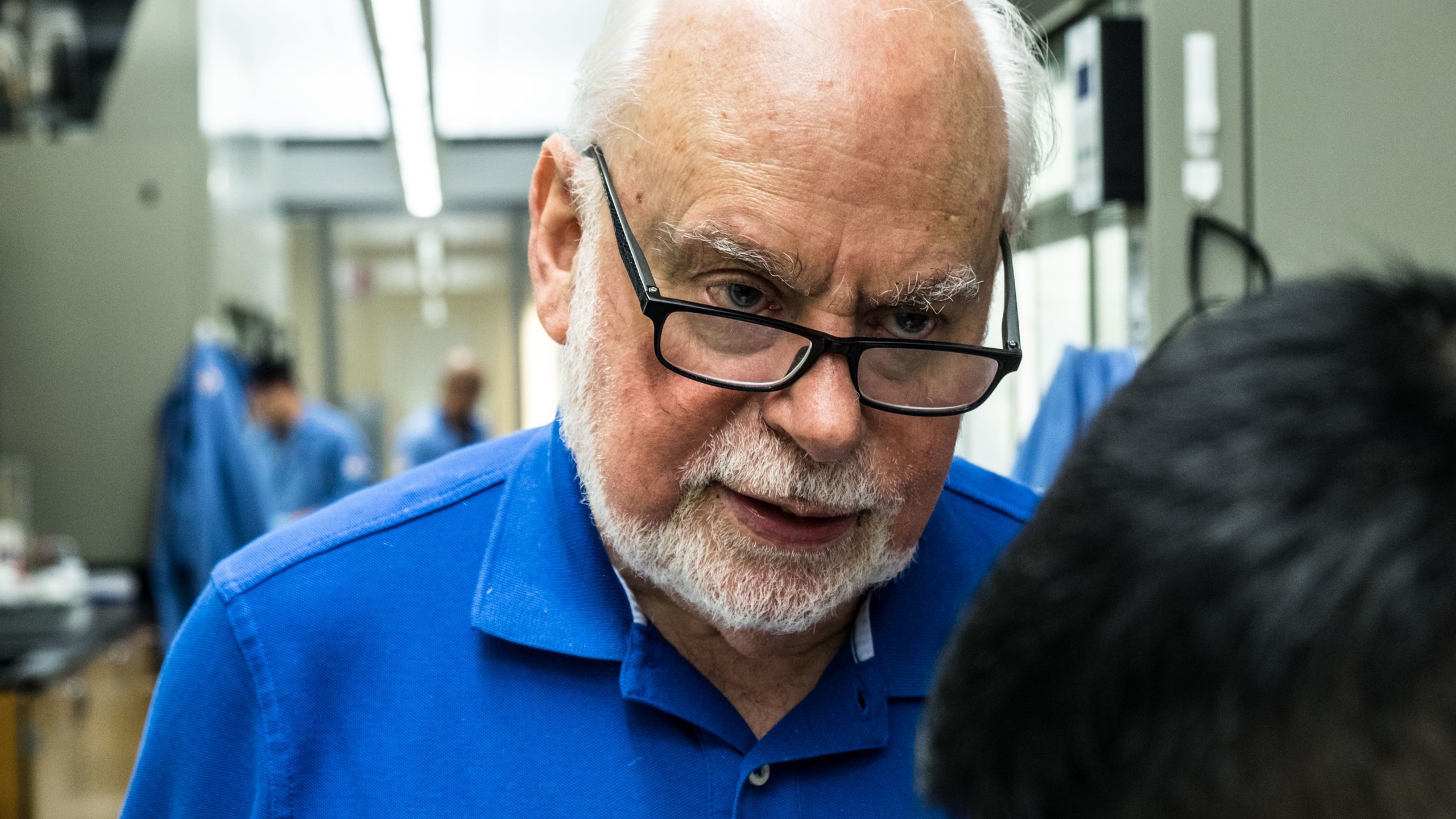Sir J. Fraser Stoddart
Interview
Interview, October 2019

Fraser Stoddart
© Nobel Media. Photo: Rasmus Lundgren
“You’ve got to break the rules”
During his career, which spans more than six decades, Fraser Stoddart has broken rules and, on occasions, upset the research establishment. His journey started in 1942 outside Edinburgh, Scotland, where he spent his early school years also working at the family farm, feeding the animals and later mending farm machinery.
Interview, September 2017
“I am now labelled as a Twitter monster!”
Sir Fraser Stoddart was interviewed on 15 September 2017 to discuss his first year as a Nobel Laureate, what he is working on now, and why he has become such an avid Twitter user.
Interview with the 2016 Nobel Laureate in Chemistry Sir J. Fraser Stoddart on 6 December 2016, during the Nobel Week in Stockholm, Sweden. Interviewer is Nobel Media’s Susanna Baltscheffsky.
Sir Fraser Stoddart talks about the artefact he donated to the Nobel Museum, what brought him to science (8:20), what brought him to university studies (10:55), the idea behind rotaxane (15:52), if he ever thought of giving up (20:07) and about how you make a good team (23:54).
The 2016 Nobel Laureates gathered for a conversation about research, drive and vision on 11 December 2016. The conversation was filmed at the Grünewald Hall at Stockholm Concert Hall, and was hosted by BBC World’s Zeinab Badawi.
Telephone interview, October 2016
“That’s what driven me through chemistry, its wonderful ability to express yourself in an artistic form”
Telephone interview with Sir J. Fraser Stoddart following the announcement of the 2016 Nobel Prize in Chemistry. The interviewer is Adam Smith, Chief Scientific Officer of Nobel Media.
Interview transcript
J. Fraser Stoddart: Hello.
Adam Smith: Oh Hello, my name is Adam Smith. I’m calling from Nobelprize.org, the official website of the Nobel Prize in Stockholm. Well, first of all congratulations on the award of the Nobel Prize.
JFS: Oh thank you very much. I’m overawed, and in a state of shock [Laughs].
AS: [Laughs] What did you do first after hearing the news?
JFS: Well I have got in contact with my two daughters. They’re thrilled to bits, and I wished to share the news with them because I sadly lost my wife 12 years ago from breast cancer. It would have been nice to be able to share this experience with her since she played such a big part.
AS: I’m so sorry to hear that, and what a sadness not to be able to tell her. But how very thrilled your daughters must be.
JFS: Oh they’re totally overwhelmed. The people who spoke to me told me that it would be shared with Jean-Pierre Sauvage, in Strasbourg, and Ben Feringa, in Groningen in the Netherlands, and I just feel thrilled about that. These are two scientists that I have held in extremely high regard all through my academic career and we have actually worked very closely together.
AS: How nice that the Prize celebrates that fellowship.
JFS: There’s so much to be had from bringing people together from different cultural backgrounds, and the amazing thing is that when you put them in a research laboratory they work like sisters and brothers. I find that, you know, I have this father, and now probably grandfatherly, relationship with them so you do just learn over the years that diversity really does enrich the process of discovery and invention and so on and so forth.
AS: People often think of chemistry in terms of bangs and smells but your work really emphasises the creative, sort of artistic aspect of the subject.
JFS: Yes, absolutely. I was not in any way drawn to chemistry by bangs and smells. In fact when lectures of this ilk appeared I subsequently would just go away and stay in the background because this was never my real empathy with chemistry. It was much more about its corresponding interaction with art and culture and so on, and so that’s what’s driven me through chemistry, its wonderful ability to express yourself in an artistic form.
AS: Thank you.
JFS: Thanks very much.
AS: Bye bye.
JFS: Bye bye.
Did you find any typos in this text? We would appreciate your assistance in identifying any errors and to let us know. Thank you for taking the time to report the errors by sending us an e-mail.
Nobel Prizes and laureates
Six prizes were awarded for achievements that have conferred the greatest benefit to humankind. The 14 laureates' work and discoveries range from quantum tunnelling to promoting democratic rights.
See them all presented here.
